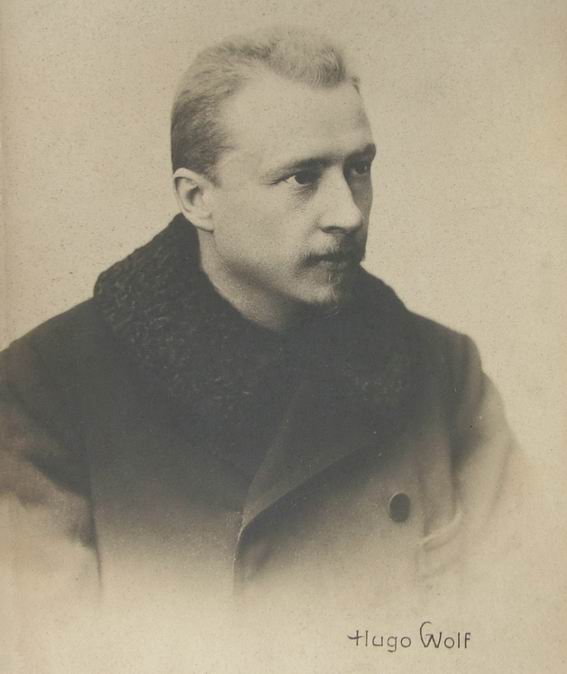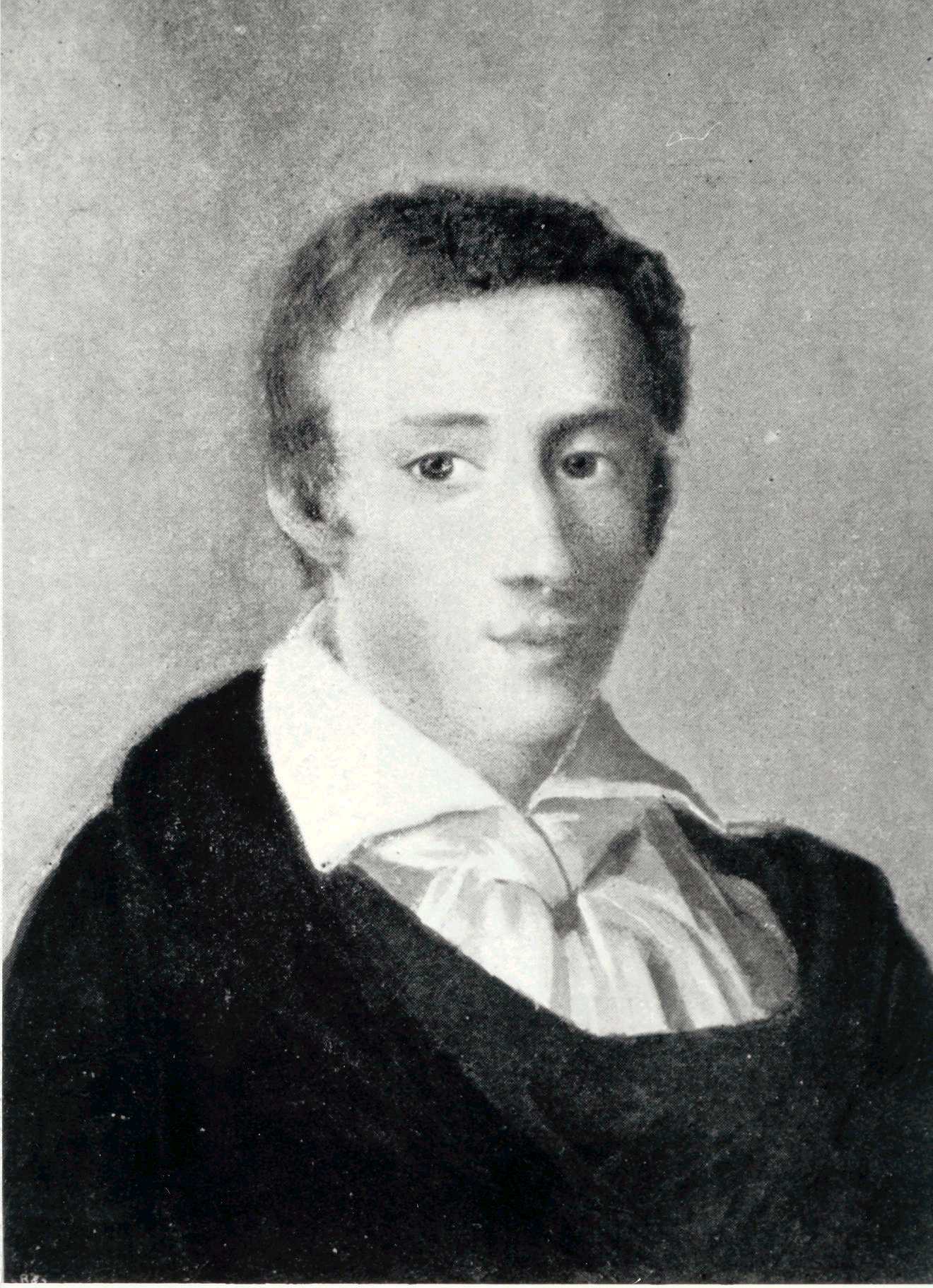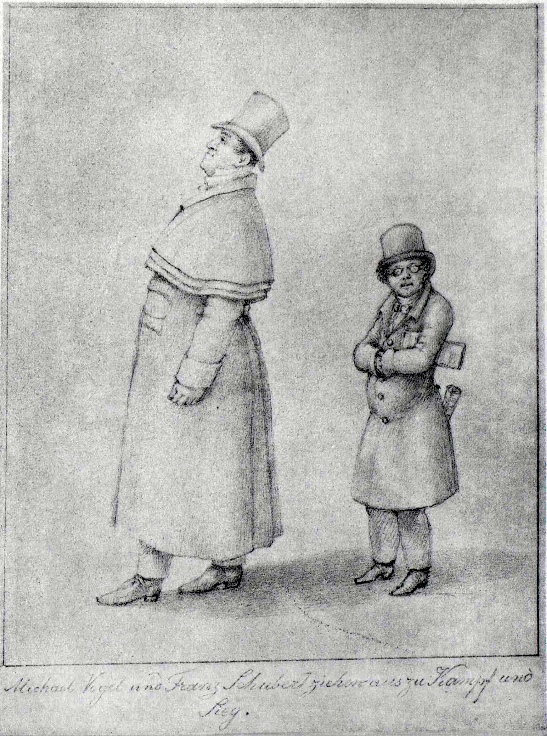|
Hugo Wolf
Hugo Philipp Jacob Wolf (; ; 13 March 1860 – 22 February 1903) was an Austrian composer, particularly noted for his art songs, or Lieder. He brought to this form a concentrated expressive intensity which was unique in late Romantic music, somewhat related to that of the Second Viennese School in concision but diverging greatly in technique. Though he had several bursts of extraordinary productivity, particularly in 1888 and 1889, depression (mood), depression frequently interrupted his creative periods, and his last composition was written in 1898, before he suffered a mental collapse caused by syphilis. Life Early life (1860–1887) Hugo Wolf was born in Windischgraz, Windischgrätz in the Duchy of Styria (now Slovenj Gradec, Slovenia), then a part of the Austrian Empire. His baptismal entry records him as ''Hugo Philip. Jacob. Wolf'', the son of Filip Wolf and Katharina (née Nußbaumer) Wolf. Herbert von Karajan was related to him on his maternal side. He spent most o ... [...More Info...] [...Related Items...] OR: [Wikipedia] [Google] [Baidu] |
Slovenj Gradec
Slovenj Gradec (; '', ''after about 1900 ''Windischgraz'') is a town in northern Slovenia. It is the centre of the Urban Municipality of Slovenj Gradec. It is part of the historical Styria region, and since 2005 it has belonged to the NUTS-3 Carinthia Statistical Region. It is located in the Mislinja Valley at the eastern end of the Karawanks mountain range, about west of Maribor and northeast of Ljubljana. History ''Gradec'', Slovene for 'little castle', was first mentioned in a 1091 deed, then part of the Imperial March of Styria. The prefix ''Windisch'' (the traditional German name for Slavs in general and Slovenes in particular) was added to distinguish it from the city Graz (whose name has the same etymology). The modern Slovene name, Slovenj Gradec (literally: the Slovene Graz), derives from this German denomination. From 1180 until 1918, Slovenj Gradec belonged to the Duchy of Styria, since 1804 a crown land of the Austrian Empire. It was the ancestral seat of the ... [...More Info...] [...Related Items...] OR: [Wikipedia] [Google] [Baidu] |
Child Prodigy
A child prodigy is, technically, a child under the age of 10 who produces meaningful work in some domain at the level of an adult expert. The term is also applied more broadly to describe young people who are extraordinarily talented in some field. The term ''wunderkind'' (from German ''Wunderkind''; literally "wonder child") is sometimes used as a synonym for child prodigy, particularly in media accounts. ''Wunderkind'' also is used to recognise those who achieve success and acclaim early in their adult careers. Generally, prodigies in all domains are suggested to have relatively elevated Intelligence quotient, IQ, extraordinary memory, and exceptional attention to detail. Significantly, while math and physics prodigies may have higher IQs, this may be an impediment to art prodigies. Examples Chess prodigies Deliberate practice K. Anders Ericsson emphasised the contribution of deliberate practice over their innate talent to prodigies' exceptional performance in chess ... [...More Info...] [...Related Items...] OR: [Wikipedia] [Google] [Baidu] |
Johann Wolfgang Von Goethe
Johann Wolfgang (von) Goethe (28 August 1749 – 22 March 1832) was a German polymath who is widely regarded as the most influential writer in the German language. His work has had a wide-ranging influence on Western literature, literary, Political philosophy#European Enlightenment, political, and Western philosophy, philosophical thought in the Western world from the late 18th century to the present.. A poet, playwright, novelist, scientist, statesman, theatre-director, and critic, Johann Wolfgang von Goethe bibliography, his works include plays, poetry and aesthetic criticism, as well as treatises on botany, anatomy, and colour. Goethe took up residence in Weimar in 1775 following the success of his first novel, ''The Sorrows of Young Werther'' (1774), and joined a thriving intellectual and cultural environment under the patronage of Duchess Anna Amalia of Brunswick-Wolfenbüttel, Duchess Anna Amalia that formed the basis of Weimar Classicism. He was ennobled by Karl August, G ... [...More Info...] [...Related Items...] OR: [Wikipedia] [Google] [Baidu] |
Rosé Quartet
The Rosé Quartet was a string quartet formed by Arnold Rosé in 1882. It was active for 55 years, until 1938. Members Its members changed over time. Rosé was first violin throughout. Julius Egghard Jr. played the second violin at first; then it was Albert Bachrich, until 1905 when Paul Fischer joined. Violist was initially Anton Loh, then Hugo von Steiner until 1901 when Anton Ruzitska came on; after 1920, Max Handl played the viola. Eduard Rosé, Arnold’s brother, had been a founding member of the ensemble playing the cello, but left after one season to get married and was replaced by Reinhold Hummer, who was in turn replaced by Friedrich Buxbaum; cellist Anton Walter joined in 1921, but later on Buxbaum rejoined. The group's peak period was between 1905 and 1920, with Rosé, Fischer, Ruzitska, and Buxbaum. Repertoire The quartet's repertoire was based around the works of Haydn, Mozart and Beethoven, but many contemporary composers also benefited from the q ... [...More Info...] [...Related Items...] OR: [Wikipedia] [Google] [Baidu] |
Frédéric Chopin
Frédéric François Chopin (born Fryderyk Franciszek Chopin; 1 March 181017 October 1849) was a Polish composer and virtuoso pianist of the Romantic period who wrote primarily for Piano solo, solo piano. He has maintained worldwide renown as a leading composer of his era whose "poetic genius was based on a professional technique that was without equal in his generation". Chopin was born in Żelazowa Wola and grew up in Warsaw, which in 1815 became part of Congress Poland. A child prodigy, he completed his musical education and composed his early works in Warsaw before leaving Poland at age 20, less than a month before the outbreak of the November Uprising, November 1830 Uprising; at 21, he settled in Paris. Thereafter he gave only 30 public performances, preferring the more intimate atmosphere of the Salon (gathering), salon. He supported himself, selling his compositions and giving piano lessons, for which he was in high demand. Chopin formed a friendship with Franz Liszt ... [...More Info...] [...Related Items...] OR: [Wikipedia] [Google] [Baidu] |
Franz Schubert
Franz Peter Schubert (; ; 31 January 179719 November 1828) was an Austrian composer of the late Classical period (music), Classical and early Romantic music, Romantic eras. Despite his short life, Schubert left behind a List of compositions by Franz Schubert, vast ''oeuvre'', including more than 600 ''Lieder'' (art songs in German) and other vocal works, seven complete symphonies, sacred music, operas, incidental music, and a large body of piano and chamber music. His major works include "Erlkönig (Schubert), Erlkönig", "Gretchen am Spinnrade", and "Ave Maria (Schubert), Ave Maria"; the Trout Quintet, ''Trout'' Quintet; the Symphony No. 8 (Schubert), Symphony No. 8 in B minor (''Unfinished''); the Symphony No. 9 (Schubert), Symphony No. 9 in C major (''Great''); the String Quartet No. 14 (Schubert), String Quartet No. 14 in D minor (''Death and the Maiden''); the String Quintet (Schubert), String Quintet in C major; the Impromptus (Schubert), Impromptus for solo piano; the S ... [...More Info...] [...Related Items...] OR: [Wikipedia] [Google] [Baidu] |
Anton Rubinstein
Anton Grigoryevich Rubinstein (; ) was a Russian pianist, composer and conductor who founded the Saint Petersburg Conservatory. He was the elder brother of Nikolai Rubinstein, who founded the Moscow Conservatory. As a pianist, Rubinstein ranks among the great 19th-century keyboard virtuosos. He became most famous for his series of historical recitals, seven enormous, consecutive concerts covering the history of piano music. Rubinstein played this series throughout Russia and Eastern Europe and in the United States when he toured there. Although best remembered as a pianist and educator (most notably as the composition teacher of Tchaikovsky), Rubinstein was also a prolific composer; he wrote 20 operas, the best known of which is '' The Demon''. He composed many other works, including five piano concertos, six symphonies and many solo piano works along with a substantial output of works for chamber ensemble. In 1865 Rubinstein married Vera de Tschikouanov, a maid of honor a ... [...More Info...] [...Related Items...] OR: [Wikipedia] [Google] [Baidu] |
Franz Liszt
Franz Liszt (22 October 1811 – 31 July 1886) was a Hungarian composer, virtuoso pianist, conductor and teacher of the Romantic music, Romantic period. With a diverse List of compositions by Franz Liszt, body of work spanning more than six decades, he is considered to be one of the most prolific and influential composers of his era, and his piano works continue to be widely performed and recorded. Liszt achieved success as a concert pianist from an early age, and received lessons from the esteemed musicians Carl Czerny and Antonio Salieri. He gained further renown for his performances during tours of Europe in the 1830s and 1840s, developing a reputation for technical brilliance as well as physical attractiveness. In a phenomenon dubbed "Lisztomania", he rose to a degree of stardom and popularity among the public not experienced by the virtuosos who preceded him. During this period and into his later life, Liszt was a friend, musical promoter and benefactor to many composer ... [...More Info...] [...Related Items...] OR: [Wikipedia] [Google] [Baidu] |
Salzburg
Salzburg is the List of cities and towns in Austria, fourth-largest city in Austria. In 2020 its population was 156,852. The city lies on the Salzach, Salzach River, near the border with Germany and at the foot of the Austrian Alps, Alps mountains. The town occupies the site of the Roman settlement of ''Iuvavum''. Founded as an episcopal see in 696, it became a Prince-Archbishopric of Salzburg, seat of the archbishop in 798. Its main sources of income were salt extraction, trade, as well as gold mining. The Hohensalzburg Fortress, fortress of Hohensalzburg, one of the largest medieval fortresses in Europe, dates from the 11th century. In the 17th century, Salzburg became a centre of the Counter-Reformation, with monasteries and numerous Baroque churches built. Salzburg has an extensive cultural and educational history, being the birthplace of Wolfgang Amadeus Mozart and being home to three universities and a large student population. Today, along with Vienna and the Tyrol (st ... [...More Info...] [...Related Items...] OR: [Wikipedia] [Google] [Baidu] |
Kapellmeister
( , , ), from German (chapel) and (master), literally "master of the chapel choir", designates the leader of an ensemble of musicians. Originally used to refer to somebody in charge of music in a chapel, the term has evolved considerably in its meaning and is today used for denoting the leader of a musical ensemble, often smaller ones used for TV, radio, and theatres. Historical usage In German-speaking countries during the approximate period 1500–1800, the word often designated the director of music for a monarch or nobleman. For English speakers, it is this sense of the term that is most often encountered, since it appears frequently in biographical writing about composers who worked in German-speaking countries. During that period, in Italy, the position (Italian: ''maestro di capella'') largely referred to directors of music assigned to cathedrals and sacred institutions rather than those under royal or aristocratic patronage. A Kapellmeister position was a senior one ... [...More Info...] [...Related Items...] OR: [Wikipedia] [Google] [Baidu] |
University Of Music And Performing Arts, Vienna
The University of Music and Performing Arts Vienna (, abbreviated MDW) is an Austrian university established in 1817 located in Vienna. With a student body of over three thousand, it is the largest institution of its kind in Austria, and one of the largest in the world. In 1817, it was established by the Society for the Friends of Music. It has had several names: ''Vienna Conservatory'', ''Vienna Academy'' and in 1909 it was nationalized as the ''Imperial Academy of Music and the Performing Arts''. In 1998, the University assumed its current name to reflect its university status, attained in a wide 1970 reform for Austrian ''Arts Academies''. The university With a student body of more than 3000, the Universität für Musik und Darstellende Kunst Wien (MDW) is one of the largest arts universities in the world. The University consists of 25 departments including the Max Reinhardt Seminar, Vienna Film Academy and the Wiener Klangstil. MDW facilities include the Schönbrunn Pal ... [...More Info...] [...Related Items...] OR: [Wikipedia] [Google] [Baidu] |







